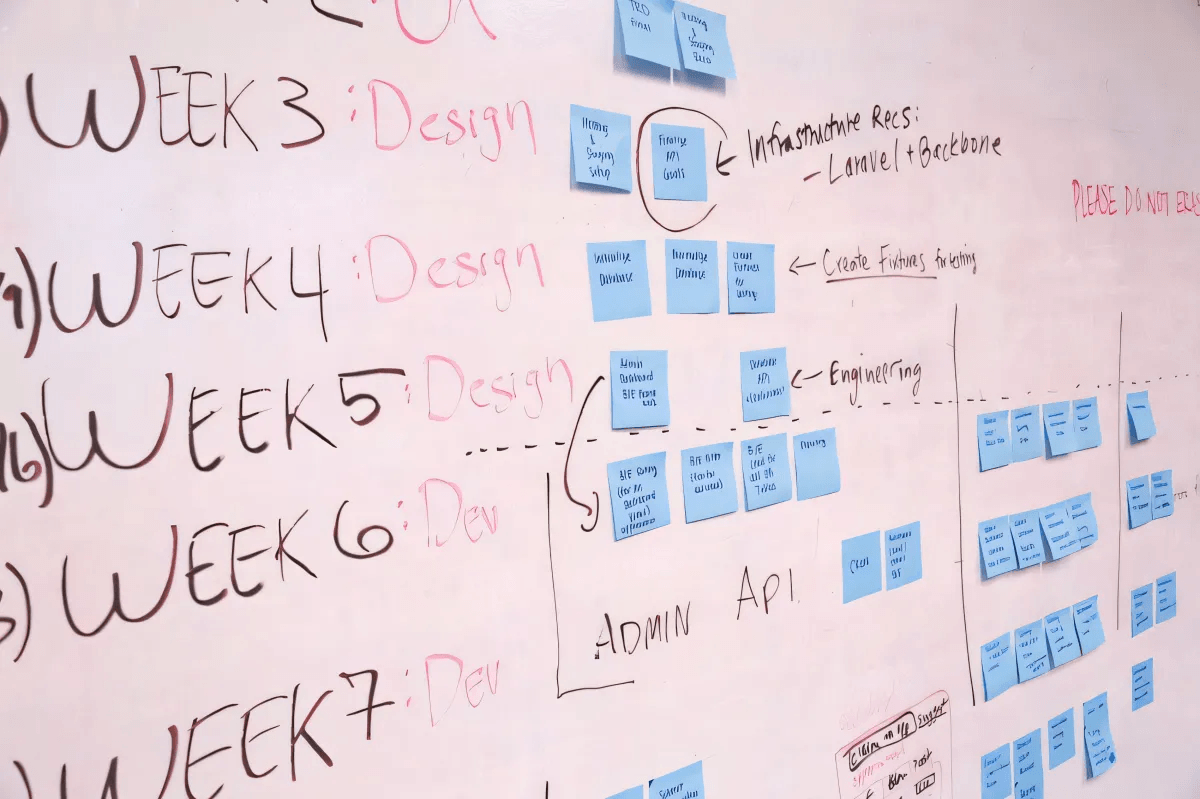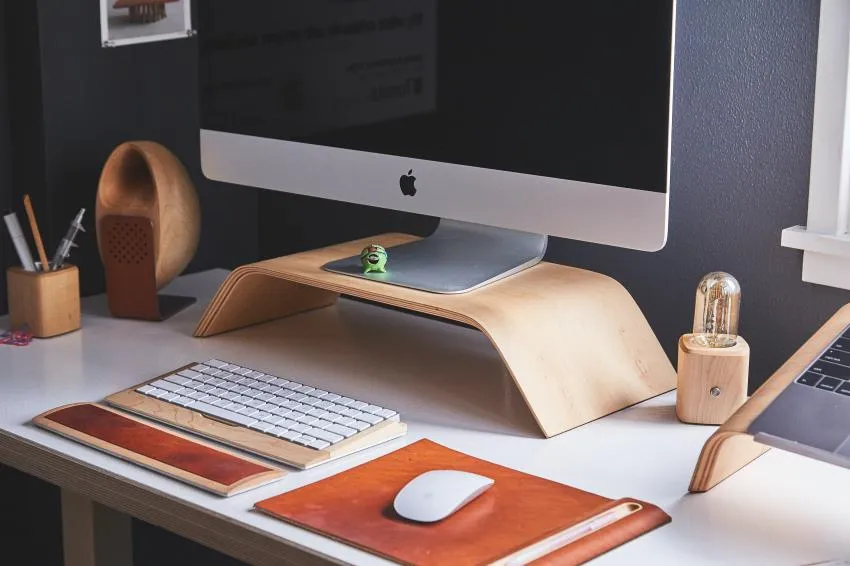5 Easy Ways To Deal With Toxic Productivity
Toxic productivity is defined as an unhealthy obsession to continue being productive through the constant overstimulation of the brain. It has become increasingly common, as many people have been feeling the need to always be doing something in a society that strongly values productivity.
Of course, regular productivity is definitely beneficial and can ensure that you achieve your goals. Productivity becomes toxic when your self-worth relies solely on how much you get done during the day and when you feel like you can never take the time to truly relax. If these symptoms sound familiar to you, you may be suffering from toxic productivity.
Here are five easy ways to deal with toxic productivity:
1. Set realistic goals and don't feel guilty if you need to adjust them

Image source: Pexels
If you are feeling overwhelmed, do not fall into the trap of toxic productivity by setting unrealistic expectations for yourself! When you are under stress, it negatively impacts your performance, so it is reasonable if you want to adjust your goals to make them more realistic. My suggestion is to use a whiteboard and make a list of everything you want to accomplish on a daily basis. This will help you stay organized, but also make it easy to adjust some of your goals if you feel like it is unachievable for that day.
2. Take frequent breaks and try to live in the moment

Image source: Pexels
Overworking yourself to the extent that it harms your health is detrimental in the long-term. For this reason, you should aim to frequently schedule breaks for yourself. Try to live in the moment and appreciate the little things in life that are unrelated to work! This will help you deal with toxic productivity because it shows that you are able to establish a healthy work-life balance. Personally, I love taking bubble baths while reading my favorite books. It is incredibly relaxing for the mind and it allows you to take a break for a while.
3. Take some time to do mindfulness exercises

Image source: Pexels
Relating to the previous point, mindfulness exercises can help you become more aware of your surroundings. They can also help decrease stress and anxiety resulting from toxic productivity by allowing you to relax the body and the mind.
For example, Anxiety Canada has a good mindfulness exercise called "Three Senses" that involves noticing what you are experiencing right now through the senses of sound, sight, and touch. Try to concentrate and slowly think to yourself three things that you can hear, three things that you can see, and three things that you can feel, and I can guarantee that it will help you settle your mind if you do it properly.
4. Clean out your workspace

Image source: Pexels
According to Harvard Business Review, our physical environment has a significant effect on our ability to concentrate. Their research has demonstrated that having cluttered workspaces is correlated with having negative impacts on our stress and anxiety levels. Therefore, cleaning out your workspace may help you deal with toxic productivity by decreasing your stress and anxiety levels. You can easily achieve this by recycling those old papers and making sure that only work-related objects remain on your desk!
5. Work on establishing healthy relationships with people around you

Image source: Pexels
This one might take a while, but it is very important that you surround yourself with people who do not reinforce behaviors related to toxic productivity. Try to become friends and associate yourself with people who understand if you need to take a break from working. Don't try to hang onto old friendships that do not allow you to become the best version of yourself. Surrounding yourself with positive friendship groups will allow you to focus on your mental health and help you break out of the cycle of toxic productivity.
Overall, it is essential to recognize the symptoms of toxic productivity so you can take active steps toward diminishing its negative effects. The best ways to transform toxic productivity so it becomes healthy productivity are by setting realistic goals, taking frequent breaks and living in the moment, doing mindfulness exercises, cleaning out your workspace, and surrounding yourself with positive friendship groups. These straightforward steps will definitely help you break out of the toxic productivity cycle!
Opinions and Perspectives
The suggestion about realistic goal-setting resonates with me. I'm learning to be more flexible with my expectations.
Reading this made me realize how much toxic productivity has affected my relationships.
I think the article could have explored more about how to maintain long-term changes.
Started practicing mindfulness exercises and they really do make a difference.
These tips have helped me create better boundaries between work and personal life.
Understanding that productivity isn't everything was my first step toward better mental health.
It's refreshing to see an article that addresses the mental health aspects of productivity.
The whiteboard method combined with regular breaks has transformed my work routine.
I find it interesting how our environment can impact our productivity and stress levels.
Implementing these tips has helped me enjoy my free time without feeling guilty.
Been struggling with this since working from home. The lines between work and personal time get so blurred.
The hardest part for me was accepting that I don't need to be productive all the time.
These strategies have helped me recognize when I'm falling into toxic productivity patterns.
What helps me is remembering that rest and recovery are essential parts of being productive.
Setting realistic goals has been life-changing. I'm actually getting more done by being more reasonable with my expectations.
I'm curious how others handle toxic productivity in academic settings. It seems particularly prevalent there.
The Three Senses exercise has become my go-to stress relief technique during busy days.
Never thought about how my workspace affects my anxiety levels. Time to do some organizing!
The article could have addressed how technology contributes to toxic productivity.
Been implementing these tips for a few weeks now. Already seeing improvements in my stress levels.
The tip about positive friendship groups is spot on. I had to distance myself from some friends who were always hustling.
Still struggling with the idea that it's okay to take breaks. Years of conditioning are hard to break.
I appreciate how the article emphasizes the difference between healthy and toxic productivity.
The mindfulness exercises seemed too simple at first, but they're surprisingly effective.
Learning to adjust goals without feeling like a failure was a game-changer for me.
I wish more employers would read this article. My company's culture definitely promotes toxic productivity.
The workspace cleaning tip really works. I decluttered my home office last weekend and feel so much lighter.
I've started scheduling dedicated break times in my calendar. Treating them as important as meetings helps me stick to them.
The article could have mentioned the role of social media in promoting toxic productivity culture.
Working on establishing healthy relationships has been key for me. My new friends actually encourage work-life balance.
Yes! The guilt is real. I'm slowly learning that rest is just as important as work.
Anyone else struggle with feeling lazy when taking breaks? Still working on overcoming that guilt.
My mental health improved significantly once I stopped measuring my worth by my productivity levels.
I found the whiteboard method really helpful. It's flexible enough to adjust when needed without feeling like I'm failing.
The article makes good points but overlooks how financial pressures can force people into toxic productivity patterns.
Been trying to balance productivity with self-care for months now. These tips give me some new strategies to try.
The Harvard Business Review research about workspace clutter is fascinating. Never realized how much my environment affected my stress levels.
I started implementing the Three Senses exercise during my lunch break and it's amazing how much calmer I feel afterward.
These tips are good in theory but harder to implement in practice, especially in competitive industries.
The suggestion about surrounding yourself with positive people is crucial. I've noticed my friends greatly influence my work habits.
I struggled with toxic productivity for years without even realizing it. This article perfectly describes what I was going through.
The mindfulness exercises seemed a bit woo-woo to me at first, but they actually make a huge difference in my stress levels.
My productivity improved dramatically after I started using a whiteboard for daily goals. It's so satisfying to check things off!
I appreciated the practical tips, but I wish the article had addressed how to handle toxic productivity in workplace cultures that demand it.
You're missing the point. It's about setting realistic goals, not lowering standards. There's a difference between challenging yourself and burning out.
Not sure I agree with adjusting goals downward. Sometimes we need to push ourselves to achieve great things.
I never realized how much my cluttered desk was affecting my mental state until reading this article. Time for some spring cleaning!
The hardest part for me is letting go of friendships that encourage toxic productivity. It's difficult when your whole social circle is achievement-oriented.
Actually, research shows that regular breaks improve overall productivity and creativity. They're essential for maintaining focus throughout the day.
The suggestion about bubble baths and reading is great! I've started implementing something similar and it's made a huge difference in my stress levels.
I disagree with taking frequent breaks. In my experience, it disrupts flow state and actually makes me less productive overall.
The part about cleaning your workspace is so true. I recently organized my desk and noticed a significant decrease in my anxiety levels.
I found the Three Senses mindfulness exercise particularly helpful. Been trying it during my work breaks and it really helps center me.
This article really hit home for me. I've been struggling with feeling guilty whenever I'm not working on something productive.
